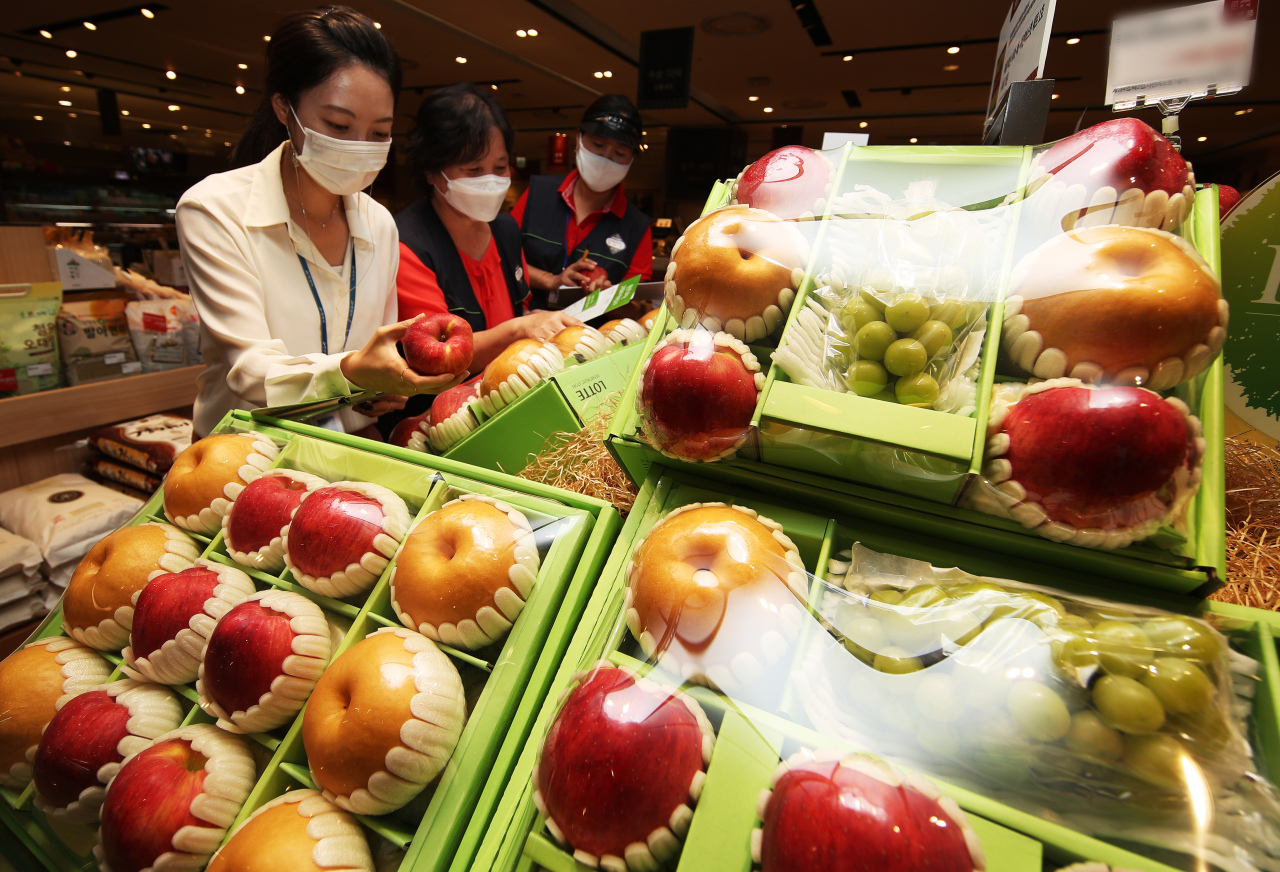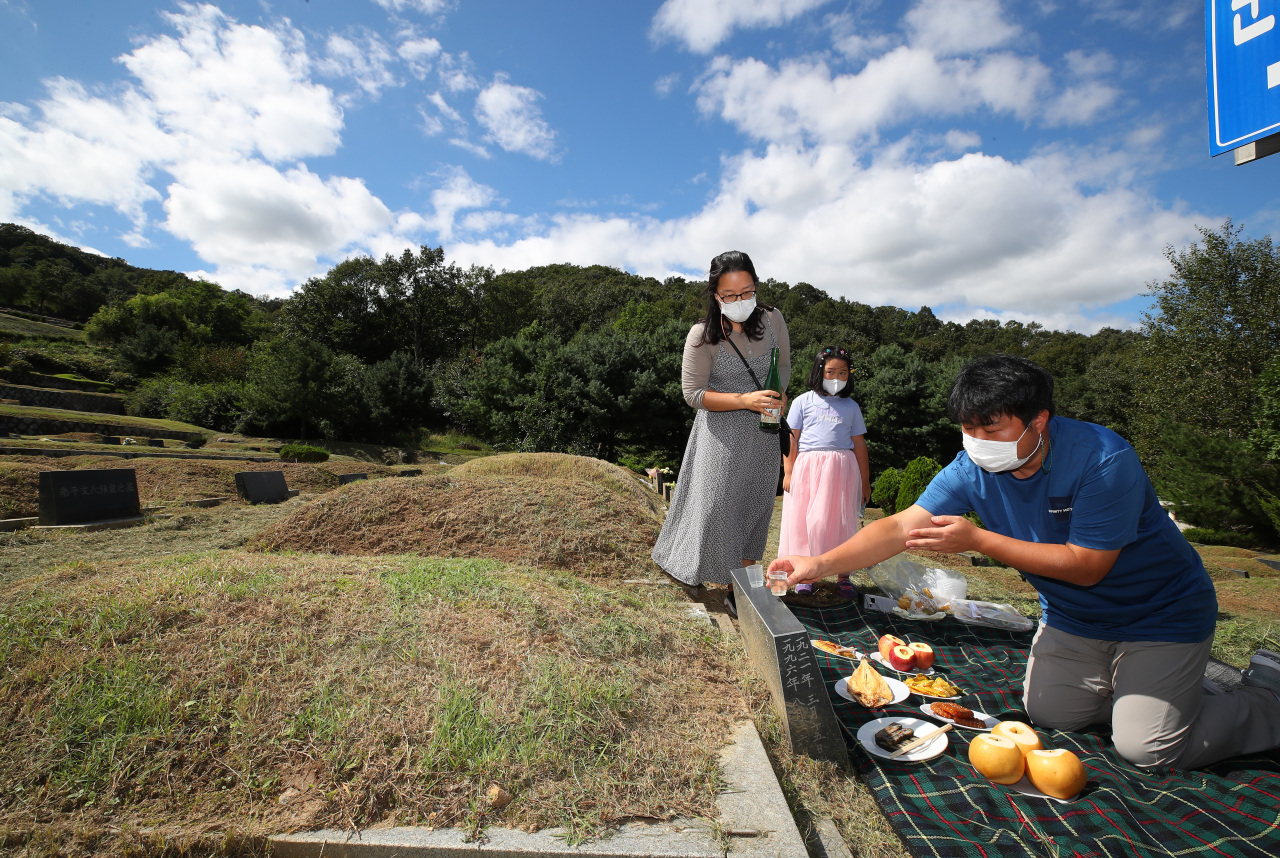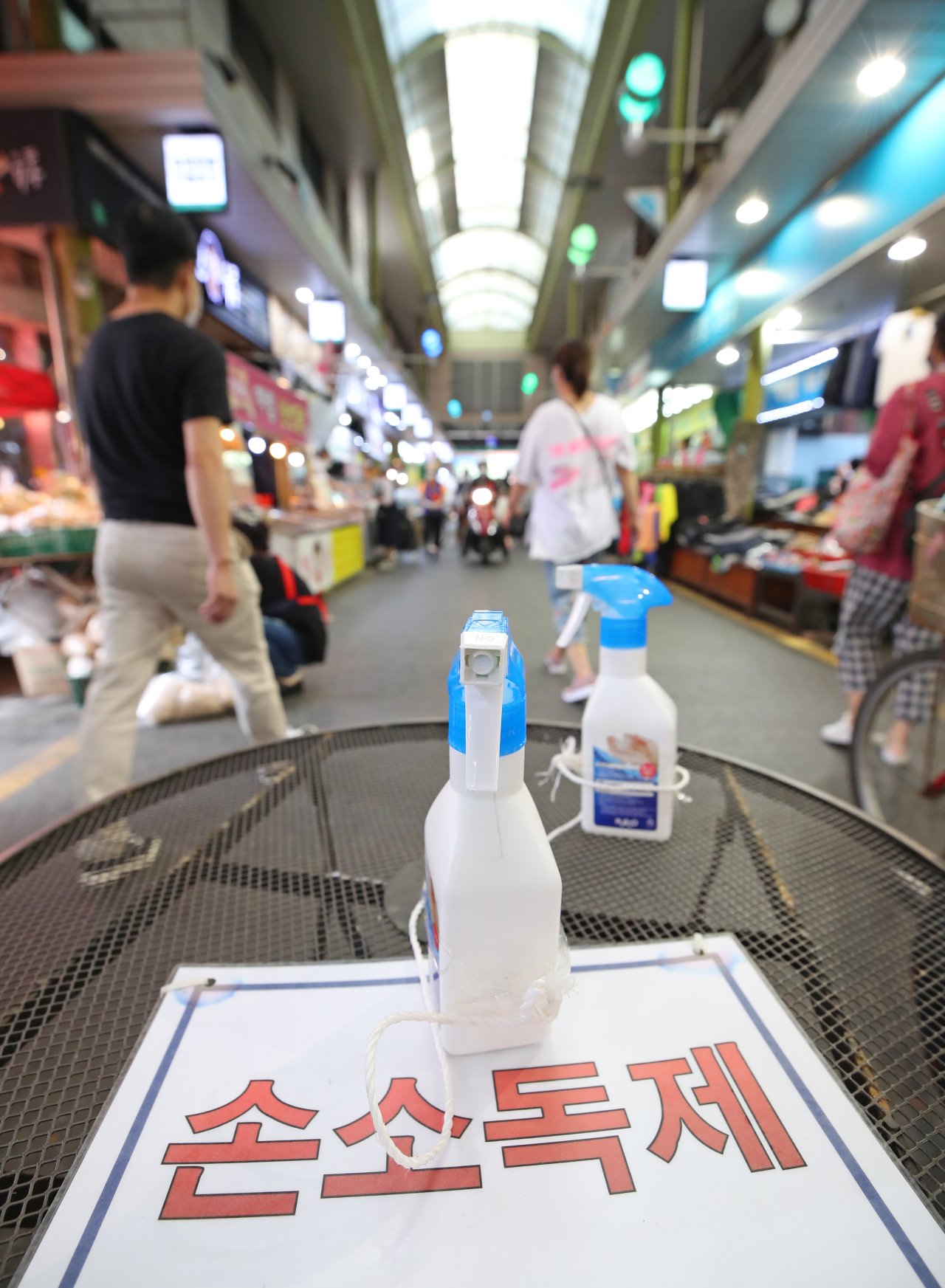[Weekender] Chuseok traditions go contactless
Traditional rites for one of Korea’s largest holidays are likely to be scaled down further as social distancing continues
By Jung Min-kyungPublished : Sept. 19, 2020 - 16:00

For centuries, Chuseok has been one of the nation’s most cherished holidays -- a time for family gatherings, an occasion to share the joy of the harvest and honor the ancestors. This year, however, the holidays are expected to take a different turn with the coronavirus pandemic forcing families to follow strict social distancing guidelines.
“I’m very worried about my grandparents contracting the virus,” Lee Min-kyu, 27, told The Korea Herald on Wednesday. Lee lives in Songpa-gu, Seoul, and his grandparents live some 200 kilometers away in a sleepy town in North Jeolla Province.
“We visit them every year during Chuseok and Lunar New Year, but this year we’re just calling them and maybe sending them small gifts via package delivery,” he added.
Some 30 percent of South Koreans plan to stay home “as much as possible” over the holiday, which falls Sept. 30 to Oct. 4 this year, according to a recent survey conducted by job search website Job Korea. The survey involved 855 office workers.
Around 22 percent said they were planning to stay home, not because of the pandemic but because they were in the process of switching jobs.
A further 28.8 percent of respondents planned to visit their parents, while 24.9 percent said they would go “full swing” and spend time with their extended families.
With so many people planning to stay home for Chuseok, those who enjoy upholding tradition and prefer to spend the holiday with family have decided to mold this year’s celebration into a contactless gathering.
According to a survey by local job portal Incruit, 36 percent of the 1,313 respondents said they would participate in “contactless” family gatherings. The survey was conducted Sept. 14-15.
Of the respondents planning to go contactless, 52.4 percent said they would meet up with family members via video chat or videoconferencing through online services such as Zoom.
Others within this 36 percent segment took their aspirations for the holidays a step further and revealed plans to participate in online rituals, with 17.3 percent saying they would carry out an online memorial service known as “charye,” which involves offering food to one’s ancestors. Another 11.5 percent were planning an online form of “seongmyo,” visits to ancestral gravesites where people often remove weeds and tidy the surrounding space as a sign of respect and care.

The options of either participating in “seongmyo” ahead of Chuseok or applying for paid services to take care of gravesites have been gaining popularity.
“I plan to pay for services that could remove weeds around my parents’ grave for this year’s Chuseok,” said 47-year-old Park Mi-young via phone.
“It’s easy to apply for such services these days because of online websites,” she added.
Chuseok: beloved, yet unpopular
As of Sept. 17, merely two weeks ahead of Chuseok, there were several posts on Cheong Wa Dae’s online presidential petition website requesting the “cancellation” of this year’s holiday. Some posts had even garnered more than 30,000 signatures.
Chuseok has maintained its status as one of the most important holidays in Korea. Yet the older traditions are slowly being replaced with brief meals, quiet get-togethers and even overseas trips. The burdensome journey home, which often means enduring traffic congestion and patriarchal traditions, have made it unpopular in recent years.

Now, with the government asking people to refrain from long-distance travel in an effort to rein in the new coronavirus, those who are not fans of the holiday are likely to take full advantage of the situation.
The trend among younger people -- those in their 20s, 30s and 40s -- is to travel during the holiday instead of taking part in family gatherings.
The Korea Airport Corp., which oversees 14 local airports, including Incheon Airport, said 962,000 people traveled on domestic flights during Chuseok last year and 307,000 took international flights.
Demand for travel during Chuseok has increased over the years and has not subsided despite the coronavirus, with Koreans now choosing domestic vacation spots in light of the restrictions.
At least 198,000 visitors are expected to arrive on Jeju Island this Chuseok, the Jeju Tourism Association said Wednesday. The figure is similar to the number of visitors during the peak summer season, when the island welcomed an average of about 40,000 visitors a day.
The daily count of new cases of the novel coronavirus in Korea spiked above 400 in August, but hovered below 200 for the 14th consecutive day on Wednesday, raising the total caseload to 22,504, according to the Korea Disease Control and Prevention Agency.
By Jung Min-kyung (mkjung@heraldcorp.com)
-
Articles by Jung Min-kyung




















